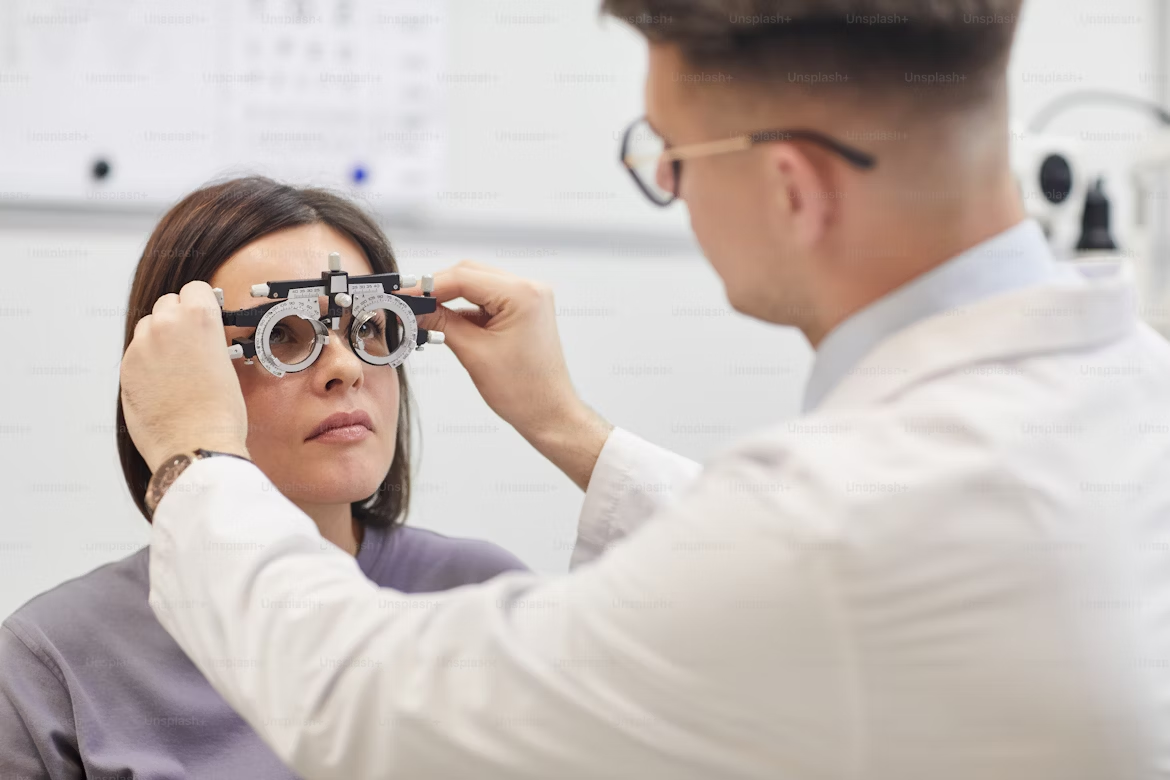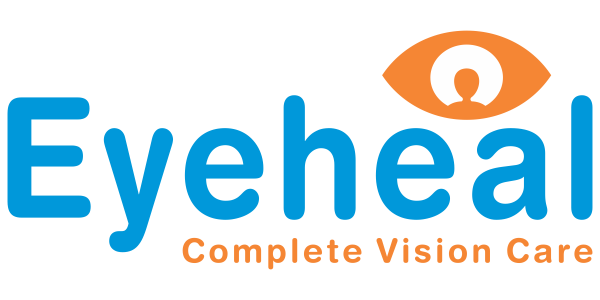What is an Eye Exam?
A comprehensive eye checkup is a detailed evaluation of your vision and the overall health of your eyes. It goes beyond just checking your eyesight – it helps detect eye diseases early, monitor existing conditions, and assess your risk for systemic health issues like diabetes or hypertension.
Who Should Get an Eye Check-up?
Eye exams aren’t just for those with poor vision. Children, adults, and seniors, all need regular eye checkups. Even if you have perfect vision, routine exams can catch silent conditions like glaucoma or retinal changes. People with diabetes, high blood pressure, or a family history of eye disease should be especially proactive.

Different Types of Eye Exams
- Vision Screening: Basic testing for visual acuity.
- Refraction Test: Determines the right prescription for glasses or contact lenses.
- Dilated Eye Exam: Helps evaluate the retina and optic nerve.
- Slit-lamp Examination: Examines the front part of the eye – cornea, iris, and lens.
- Tonometry: Measures intraocular pressure to screen for glaucoma.
Different Parts of an Eye Exam
A comprehensive checkup includes a case history, vision testing, refraction, eye coordination assessment, examination under magnification, and sometimes dilation for a detailed retinal exam.
Common Eye Conditions Detected During Eye Check-ups
- Refractive errors (myopia, hyperopia, astigmatism)
- Cataracts
- Glaucoma
- Diabetic Retinopathy
- Age-related Macular Degeneration
- Dry Eye Disease
- Allergic Eye Conditions
Benefits of Having Routine Eye Check-ups
Early detection means better outcomes. Many eye diseases don’t show symptoms in their early stages. Regular eye exams help preserve vision, detect systemic conditions early, and keep your glasses prescription updated.
Importance of Regular Eye Check-ups
Vision is an essential part of overall quality of life. Ignoring minor symptoms or skipping regular exams can lead to irreversible vision loss. Prevention and early diagnosis are key.

Tips for Maintaining Eye Health
- Wear UV-protective sunglasses
- Take screen breaks (20-20-20 rule)
- Eat a balanced diet rich in leafy greens and omega-3s
- Control blood sugar and blood pressure
- Avoid smoking
- Schedule regular eye checkups, even if you don’t wear glasses
Frequently Asked Questions (FAQS)
How often should I get my eyes checked?
Adults should have an eye check-up every 1–2 years. If you have diabetes, wear glasses, or have a family history of eye disease, you may need more frequent exams.
What are some early warning signs of eye problems?
Blurry vision, eye strain, frequent headaches, floaters, glare, or difficulty seeing at night can all indicate underlying issues. Don’t ignore sudden changes.
Is a regular eye exam really necessary if I have no vision problems?
Yes. Many serious eye conditions like glaucoma or diabetic retinopathy can develop silently. Regular exams help catch problems early, even before symptoms appear.
Do I need to prepare for an eye check-up?
No major preparation is needed. Just bring your current glasses or prescription, a list of medications, and any eye-related symptoms you’ve noticed.
Can I drive after an eye exam?
If your eyes are dilated during the exam, your vision may be blurry and sensitive to light for a few hours. It's safer to arrange someone to drive you home.
